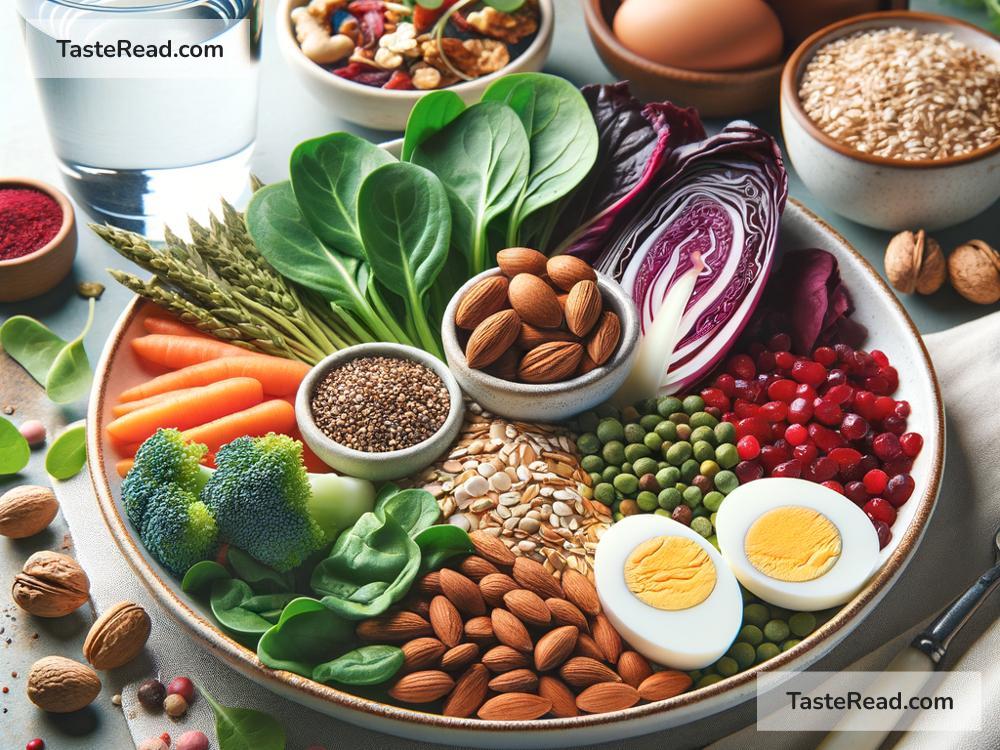The Role of B Vitamins in Energy Production
Have you ever wondered how your body stays energized to function throughout the day? The answer lies in the food you eat and how your body converts it into energy. This amazing energy-making process happens with the help of B vitamins, a group of nutrients that play a critical role in keeping you active and alert. In this blog, we’ll dive into the world of B vitamins and explore how they help your body produce energy, all explained in simple terms.
What Are B Vitamins?
B vitamins are a group of eight essential nutrients that your body needs to stay healthy. Each type has its own special job, but they all work together to help your body turn food into energy. The eight B vitamins are:
- B1 (Thiamine)
- B2 (Riboflavin)
- B3 (Niacin)
- B5 (Pantothenic Acid)
- B6 (Pyridoxine)
- B7 (Biotin)
- B9 (Folate or Folic Acid)
- B12 (Cobalamin)
These vitamins are water-soluble, meaning your body doesn’t store them and they need to be replenished regularly through your diet.
How Do B Vitamins Help With Energy Production?
At the heart of it, B vitamins help your body unlock the energy stored in the food you eat. Whether it’s a slice of bread, a bowl of rice, or some fresh vegetables, the calories in your food don’t magically make you energized on their own. Your body needs to break these calories down into usable energy, and this process requires numerous chemical reactions. That’s where B vitamins step in!
Here’s a closer look at the roles of key B vitamins in energy production:
-
B1 (Thiamine): Thiamine is like the ignition key to your body’s energy engine. It helps convert carbohydrates (like sugars and starches) into energy. It also plays a role in nerve function, keeping your body’s communication system running smoothly.
-
B2 (Riboflavin): This vitamin works as a helper molecule in many energy-production chemical reactions. It supports the breakdown of fats, proteins, and carbohydrates into energy. Riboflavin also keeps your skin and eyes healthy.
-
B3 (Niacin): Niacin is vital for creating molecules that transport energy within your cells. Without it, your body would struggle to break down food and power its daily functions.
-
B5 (Pantothenic Acid): This vitamin links different chemical pathways in your body and is crucial for turning fats and carbohydrates into energy.
-
B6 (Pyridoxine): While it’s better known for its role in protein metabolism and brain health, B6 also supports energy production by helping break down amino acids (the building blocks of proteins).
-
B7 (Biotin): Biotin is like a handyman for your energy production system. It assists enzymes that process carbohydrates, fats, and proteins into energy.
-
B9 (Folate): Folate helps the body make new cells and supports DNA formation, but it also plays an important role in red blood cell production. Red blood cells carry oxygen, which fuels your cells and contributes to energy.
-
B12 (Cobalamin): B12 is especially known for helping produce red blood cells, but it also works with folate to create DNA and plays a role in keeping your energy levels high.
Why Are B Vitamins Important?
Without enough B vitamins, energy production in your body slows down. You might feel tired, sluggish, or even irritable. Since B vitamins are involved in so many functions, a deficiency can also affect other areas of your health, such as brain function, cell growth, and nerve function.
For example, a lack of B12 can cause fatigue and weakness because your body struggles to make enough red blood cells to distribute oxygen. Similarly, low levels of B6 or thiamine may cause confusion or irritability because your brain isn’t getting the energy it needs to work properly.
How Can You Get Enough B Vitamins?
The good news is that B vitamins are found in many different types of food, so it’s easy to include them in your diet. Here are some examples of foods rich in B vitamins:
- B1: Whole grains, nuts, seeds, pork, and beans.
- B2: Dairy products, eggs, leafy greens, and almonds.
- B3: Meat, fish, poultry, peanuts, and fortified cereals.
- B5: Eggs, avocados, sweet potatoes, and legumes.
- B6: Bananas, chicken, potatoes, and fortified cereals.
- B7: Eggs, nuts, sweet potatoes, and seeds.
- B9: Leafy greens, oranges, beans, and fortified grains.
- B12: Meat, fish, eggs, dairy, and fortified plant-based products (like almond milk or cereals).
If you eat a balanced diet full of whole foods, you’ll likely get enough B vitamins. Vegetarians and vegans, however, may need to pay special attention to B12 intake since it’s mostly found in animal products.
Should You Take B Vitamin Supplements?
Most people can get enough B vitamins through their diet. However, some groups, like older adults, pregnant women, and people with specific health conditions, may benefit from supplements. Always talk to a doctor before taking any vitamins as supplements.
Final Thoughts
Energy is essential for life, and B vitamins are the nutrients that keep your body’s energy engine running smoothly. By helping your body break down food into usable fuel, B vitamins ensure you stay active, focused, and healthy. Check your diet and make sure you’re including foods rich in B vitamins. It’s a simple way to boost your energy and support your overall health every day!


